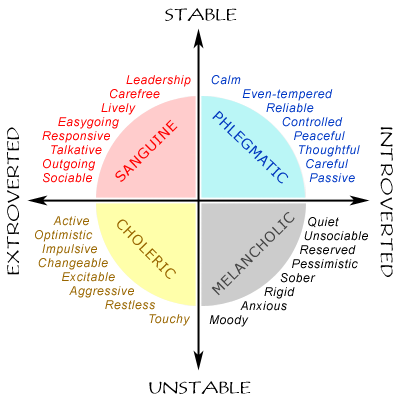How To Better Understand Children’s Personality Types
 “Not everyone thinks the way you think, knows the things you know, believes the things you believe, nor acts the way you would act. Remember this and you will go a long way in getting along with people” Arthur Forman
“Not everyone thinks the way you think, knows the things you know, believes the things you believe, nor acts the way you would act. Remember this and you will go a long way in getting along with people” Arthur Forman
The world is complex and so are the people who live in it. With a world population of 7.6 billion people (United Nations October 2017), we are bound to meet a range of people with personalities different from ours.
Man was created to be relational and cannot live in isolation. Whether we accept it or not, we need one another to thrive. Life is built on relationships and in getting along with people. It is imperative for everyone to know a little about personality types. This enables us to know more about ourselves, and helps us to understand others better.
In whatever we do, interacting with people from different backgrounds and with different temperaments is inevitable. In order to get along well with others, it will be wise to know how to manage people. Starting from our homes, identifying one’s personality first, spouse’s and the children will help and also give a better perspective about behavioral patterns. This might help prevent potential outbursts, anger or frustrations and allow us be compassionate as well as offer necessary support.
We don’t have to be Psychologists or Doctors to have understanding of temperaments. We need to be informed and knowledgeable, it enables us to get along and accept our differences .Our home should be the first and best place to start to address this.
Greek physician Hippocrates, as far back as two thousand years ago identified four major temperaments; Melancholic, Sanguine, Choleric and Phlegmatic. There are characteristics of one or more temperaments in most individual but usually there is a dominant one. However, we now have sixteen temperaments due to the complexity of man,
Interestingly, when I was reading through these personality types, I could identify the temperaments of each of my children and spouse but I did not engage the thought of identifying my temperament. It just makes me know how the human mind works, in order to help others. However, it makes more sense to know more about one-self i.e strengths and weaknesses after which one can offer help. The good book says, ‘remove the log in your own eye before removing the speck in another’s eye’ . Also in the event of danger in aircrafts, it is always repeated that you wear your oxygen mask first.
MELANCHOLIC TEMPERAMENT:
Deep Solitary Thinker. One can identify this temperament by a slow, weak reaction to stimulus that is deep and enduring.
Strengths– Careful and detailed with sharp and profound knowledge. Modest and takes a serious view to life. Soft hearted and sympathetic, yet, loves solitude and silence. Introspective in nature. They love easily and can get very attached to people. Once an impression is implanted in them, it grows very deep. Very endearing!
Weakness– Passive and pessimistic. Has a tendency for sadness, low self-esteem and easily discouraged. Hesitates to begin projects and making decisions. Easily becomes frightened and frustrated when pressured. Needs time to make decisions. Difficult to excite and hurts easily.
Parents of these children should gently guide and discipline with firmness and understanding. A melancholic child must eat well, exercise and get plenty of rest
SANGUINE:
A Bright, Shining Star. One can identify this temperament by quick, vehement reactions to stimulus that are shallow and short lived.
Strengths– Confident, optimistic, rational and even tempered. Fun loving and gets along well with difficult people. Practical and bears no grudge. Sensitive, compassionate, sincere and obedient. Intelligent, creative and has an active imagination. Also cheerful and Joyfull!
Weakness– Acts imprudently and easily losses interest. Shows little interest in hard work and tends to brush the surface. Moods and views change easily. Can be vain and self- complacent. They seek flattery and praise because it brings great happiness.
Parents of these children should guide to dispel over confidence. Also teach to view things from different angles and insist on perseverance.
PHLEGMATIC TEMPERAMENT:
Slow and Steady
One can identify this temperament by rare or weak reaction to stimuli, which easily fades away.
Strengths– Relaxed, composed, thoughtful and easy going. They have a great deal of common sense and mental balance. In addition, they do not demand much and are not bothered by difficult situations. Compassionate, consistent and reliable. Also, suffering and failures do not greatly disturb them.
Weakness– Inclined to easy life. Ambitions and set goals hold very little appeal to them. Resistant to change and lack of energy to take full advantage of their abilities.
Parents of these children need to lay out strict schedules as they lay out information in great details. Consistent talking is necessary as they are directed to lofty ideas
CHOLERIC TEMPERAMENT:
Aspirations and Abilities. One can identify this temperament by quick, vehement reactions to stimulus and deep and enduring reactions.
Strengths– Confident, strong willed, intelligent and resolute. Loyal, faithful, determined and trustworthy. Enjoys work and has great energy. They are inborn heroic and they also have noble ambitions.
Weakness– Impatient, over confident, stubborn, opinionated and unsympathetic. Desires to win at all cost and will not ask for help even when needed. Has a lot of pride, easily angered and criticizes.
Parents with these children should help with anger management and guide them to what is noble and honorable. In addition, they should learn humility, how to ask for help and apologize.
To know and understand these four temperaments and how they relate to our family members and close associates is extremely useful for our relationships. This will also help us in relating with people in the larger society. Most importantly, people about to start a relationship should always remember the saying that ‘unlike poles attract and like poles repel.’ Some relationships are doomed right from the beginning, however, we can avoid if we are well informed. Therefore, avoid going into partnerships with people of the same temperament as you. Also, for those already in it, continue to learn more, work on yourself and be very patient with yourself and the other party.
Acquainting ourselves with personality types may help us tread gently on people’s emotions, be more understanding and less judgmental.
With a strong wave of emotional instability going on in the lives of children and adults due to societal and economic factors amongst others, let us focus more on each other’s strengths and provide the needed support in helping over-come each other’s weaknesses. After all, no one is perfect; we are all works in progress.
Author: Mrs Abimbola Somolu



